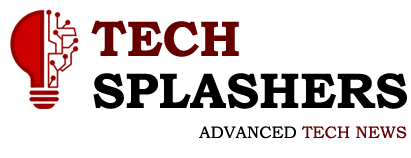The 4 Technological Pillars For 2021

We love hearing from consultants and experts talking about pillars, trends, predictions, and futures of all kinds. However, there is no way to listen to those who are risking their money to understand where the business focuses of an industry such as ICT are going to be, speaking with many of them we can identify 4 common areas in almost all conversations.
Below we identify what for many will be 4 large blocks (not the only ones) of absorption of investment, resources, and technical talent in 2021 and the following years.
Table of Contents
Remote Work
Add it up and go on, remote work has become the main business trigger in the last 6 months and it is estimated that during the next two years it will continue to be so. The normality of work as we knew it before 2020 is simply not going to return, the sales of PCs and tablets have skyrocketed with a delta over the expected growth of more than 20%.
On the other hand, sales of collaboration solutions such as Microsoft Teams or communication solutions such as Zoom are out of control, for example, this last company began 2020 with a value per share of $ 68.8 in October of the same year, its price is $ 513.2 (7, 5 times more in 10 months).
“NORMAL LABOR AS WE KNEW IT BEFORE 2020 IS SIMPLY NOT GOING TO RETURN”
Remote work is much more than communications software; it is converting the homes, mobile phones of millions of employees into an extension of the office including “meeting rooms” access to information, collaboration, and other business operations.
Remote work is much more than communications software; it is converting the homes, mobile phones of millions of employees into an extension of the office including “meeting rooms” access to information, collaboration, and other business operations.
Business Continuity
Business Continuity or business continuity is another of the great ICT areas on the rise. That a company today stops its computer operations is similar to that a few years ago its offices were burned. The operational, commercial, and managerial dependence on IT is so critical that there are companies that can lose billions due to business continuity problems.
Top Business Continuity Issues
Hacker and Malware Attacks
External attacks by hackers, data hijacking, bots, and malicious code have multiplied at the same rate as dependence on technology
Sabotage
Sabotage due to multiple causes, unfair competition, internal attacks, political-economic destabilization, hidden interests is some of the new risks of our era.
“INTERNAL, POLITICAL, OR LEGAL SABOTAGE GROWS 20% ANNUALLY”
Destruction Of Data Centers
The risk of disasters such as fires, blackouts, floods, is another of the great problems of business continuity. The problem is not that they have increased in number but in the magnitude of their consequences.
Security
Security is certainly one of the most investment sources that will star in the coming months. The existence of millions of access points to the systems from outside the offices, from sometimes uncontrolled devices as well as the geographic dispersion of information and storage disks outside the office further increase the criticality of the already in itself the high need for ICT security.
Security seeks to prevent breaches, anticipate problems, and minimize risks. When security fails, business continuity capabilities come into play as seen in point 2. The idea is to never have to activate the business continuity and disaster recovery protocols.
Migrations To The Cloud
The migration of applications, solutions, and services to the cloud is the fourth major player in ICT investment. Companies and corporations are taking their operation to the cloud, it is a transfer of operational location, which includes an implicit improvement of the systems and procedures themselves.
THE “MERE” MIGRATION TO THE CLOUD WILL HAVE EXPONENTIAL GROWTH IN THE SHORT
This computational and data storage “change of location” is in itself a super-revolution that absorbs a huge amount of investment and resources due to the need to reconcile traditional practices with new, more efficient, and secure ICT models.
The public cloud, but especially the hybrid cloud, is de facto the basic paradigm of any infrastructure worth its salt, and the “mere” migration to the cloud is the focus with exponential growth in the short term.







